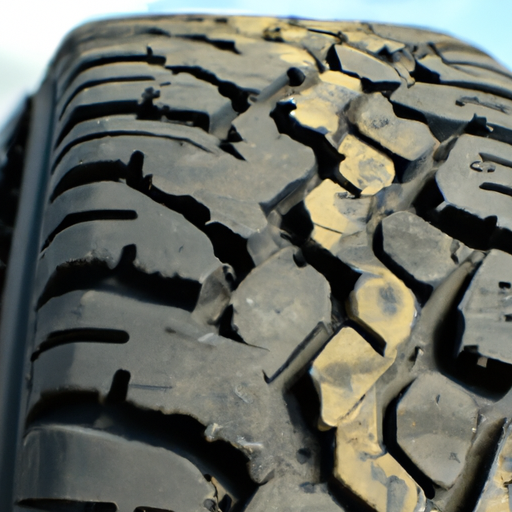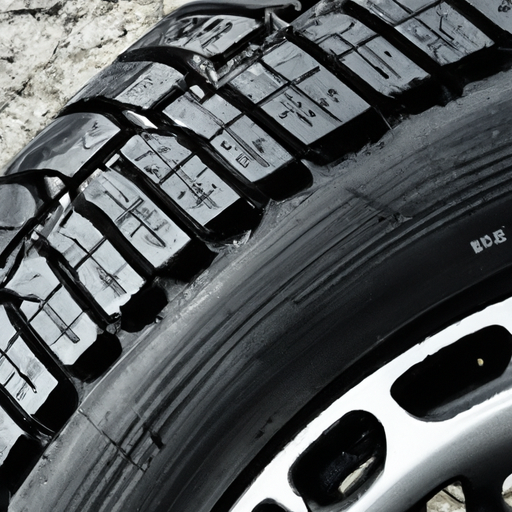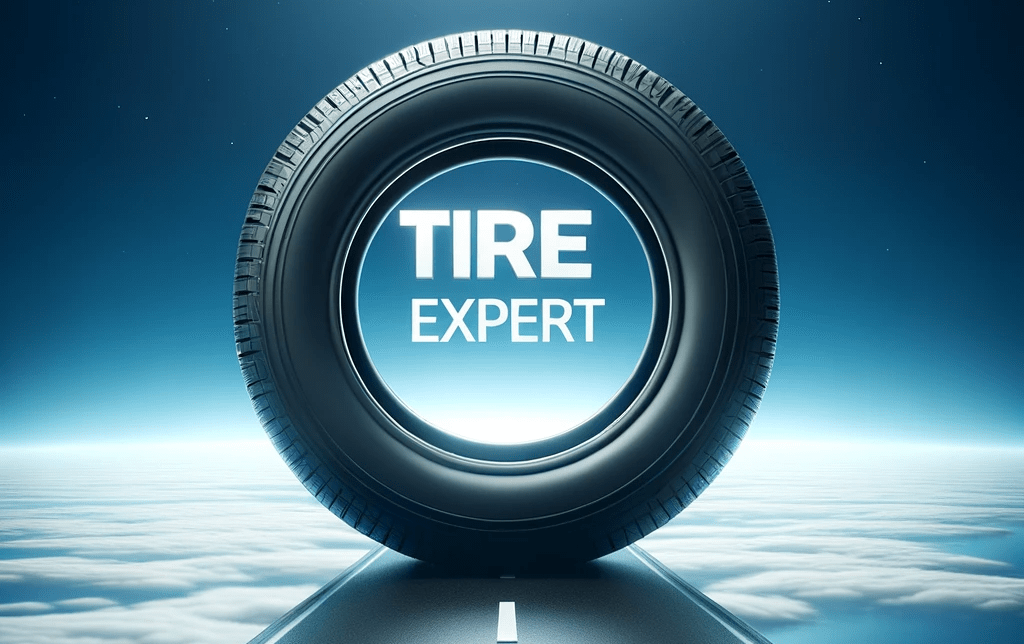Imagine cruising down the road on a sunny summer day, feeling the warm breeze against your skin and the freedom in your veins. But have you ever given thought to what makes your vehicle glide effortlessly on the asphalt? It’s the summer tires. These specialized tires play a crucial role in enhancing the overall handling of your vehicle, giving you a smooth and thrilling driving experience. From improved grip and responsiveness to enhanced cornering and braking capabilities, summer tires are a game-changer when it comes to ensuring maximum control and safety on the open road. So, let’s take a closer look at how these tires revolutionize your driving adventures.
1. Traction
When it comes to traction, summer tires excel in various aspects, starting with their tread design. The tread pattern of summer tires is specifically designed to provide optimal grip on dry pavement. The patterns typically feature larger, continuous tread blocks with minimal siping, allowing for maximum contact with the road surface. This design enhances traction and stability during acceleration and provides a confident driving experience.
The rubber compound used in summer tires also contributes to their exceptional traction. These tires are usually made with a softer and stickier rubber compound, optimized for warmer temperatures. This allows them to maintain excellent grip on dry roads, enabling you to accelerate quickly and confidently.
In terms of wet traction, summer tires may not be as effective as their all-season counterparts. The tread patterns of summer tires are not as aggressive when it comes to dispersing water, which means they may be more prone to hydroplaning in wet conditions. However, advancements in tread design and the addition of specialized grooves and channels have improved the wet traction performance of some summer tires.
On dry surfaces, summer tires truly shine. They offer superior grip and traction, allowing for precise and responsive handling. Whether you’re navigating winding roads or taking sharp turns, summer tires provide excellent control and stability. Their ability to maintain traction even during aggressive maneuvers makes them a preferred choice for performance-oriented driving enthusiasts.
2. Steering Response
One of the key factors that impact the overall handling of a vehicle is the steering response. Summer tires are known for their exceptional sensitivity to steering inputs. When you turn the steering wheel, summer tires respond quickly and precisely, allowing for effortless maneuvering. This responsiveness enhances the overall driving experience and gives you a greater sense of control over your vehicle.
Moreover, summer tires offer excellent precision and accuracy in steering. They provide a direct connection between the driver’s inputs and the vehicle’s movements, ensuring the car responds exactly as intended. This level of precision is particularly important for performance-oriented driving, where split-second decisions can make a significant difference in handling.
Additionally, summer tires provide valuable feedback from the road. As you drive, you’ll feel a greater level of communication between the tires and the steering wheel, allowing you to better sense the road conditions. This feedback helps you make adjustments to your driving style and maintain better control, further enhancing the overall handling of your vehicle.

3. Stability and Control
When it comes to stability and control, summer tires offer impressive performance in various driving scenarios. Their cornering stability is exceptional, allowing you to confidently take on sharp turns and curves. The combination of their tread design, rubber compound, and responsive steering response ensures that the tires maintain a strong grip on the road during cornering, minimizing the risk of skidding or loss of control.
In addition to cornering stability, summer tires excel in lane changes and sudden maneuvers. These tires provide the necessary traction and control to navigate through traffic with ease. Whether you need to change lanes swiftly or make sudden evasive maneuvers, summer tires allow for precise and predictable movements, enabling you to stay in control of your vehicle.
4. Hydroplaning Resistance
While summer tires are designed primarily for dry conditions, advancements in technology have improved their hydroplaning resistance to some extent. The grooves and channels incorporated into the tread design of certain summer tires help evacuate water from the tire’s contact patch, reducing the risk of hydroplaning.
However, it is important to note that summer tires may not perform as effectively as all-season tires in wet conditions. The tread patterns of summer tires are generally optimized for dry traction, and their limited ability to disperse water may lead to reduced grip on wet roads. It is advisable to exercise caution and adjust your driving style accordingly when driving on wet surfaces with summer tires.
The resistance to hydroplaning also depends on factors such as speed and water depth. Higher speeds and deeper water increase the risk of hydroplaning, regardless of the type of tire. Therefore, it is essential to drive at a safe and appropriate speed in wet conditions and avoid areas with excessive water accumulation.

5. Noise and Comfort
When it comes to noise levels, summer tires generally offer a quieter driving experience compared to their all-season counterparts. The tread patterns of summer tires are designed to optimize contact with the road, minimizing tire noise. This results in a smoother and quieter ride, enhancing overall comfort for both the driver and passengers.
In terms of vibration and handling comfort, summer tires again deliver impressive performance. The softer rubber compound used in these tires helps absorb road imperfections, reducing the impact felt inside the vehicle. This leads to a more comfortable and enjoyable driving experience, especially on well-maintained roads.
6. Temperature Range
The temperature range is an important consideration when it comes to tire performance. Summer tires are specifically designed for warmer temperatures and perform optimally in such conditions. Their rubber compound is formulated to provide excellent grip and traction on hot pavement, ensuring maximum performance when temperatures rise.
In terms of heat resistance, summer tires excel. They can handle high temperatures without compromising their integrity or performance. This is especially crucial during prolonged drives or demanding driving situations, where excessive heat can potentially impact tire performance. With summer tires, you can have peace of mind knowing that they can handle the heat and keep you safe on the road.
On the other hand, it is important to note that summer tires may not perform as effectively in cold weather. The rubber compounds used in summer tires tend to harden in colder temperatures, which can lead to reduced traction and grip. If you live in an area with consistently low temperatures or encounter frequent winter weather conditions, it is recommended to switch to winter or all-season tires during the colder months.

7. Tread Life
The tread life of a tire refers to its durability and longevity before it needs to be replaced. Summer tires generally have a shorter tread life compared to all-season tires due to their softer rubber compound and specific design optimized for performance. The soft rubber provides excellent traction and grip but wears down faster than the harder rubber compound used in all-season tires.
The wear rate of summer tires varies depending on several factors, including driving style, road conditions, and maintenance. Aggressive driving, frequent hard braking, and high-speed maneuvers can accelerate tire wear. Additionally, road surfaces with rough or abrasive conditions can also contribute to quicker tread wear.
The tread patterns of summer tires play a role in their wear rate as well. Some tread patterns may wear more evenly than others, increasing the overall tread life of the tire. It is important to regularly inspect your tires and monitor their tread depth to ensure they are safe and have sufficient life remaining. Rotate your tires regularly and maintain proper tire inflation to optimize their lifespan.
8. Fuel Efficiency
Fuel efficiency is a consideration for many drivers, as it directly impacts running costs and environmental impact. Summer tires generally offer better fuel efficiency compared to all-season tires due to their lower rolling resistance. Rolling resistance refers to the amount of energy required to keep the tires in motion. With lower rolling resistance, summer tires require less energy to move, resulting in improved fuel efficiency.
By reducing fuel consumption, summer tires can help you save money on fuel expenses over the long term. Additionally, their lower fuel consumption contributes to a reduced carbon footprint and overall environmental impact.

9. Maintenance and Storage
Proper maintenance and storage of your tires are crucial for ensuring their longevity and optimal performance. With summer tires, following a few key practices can help maximize their lifespan and performance.
Maintaining proper inflation levels is essential for all tire types, including summer tires. Underinflated or overinflated tires can affect handling, traction, and tread wear. Regularly check the tire pressure and adjust it according to the manufacturer’s recommendations to ensure optimal performance and safety.
When it comes to seasonal storage, it is important to store summer tires in a cool, dry, and clean environment. Avoid exposure to direct sunlight, extreme temperatures, and chemicals, as these can deteriorate the rubber compound and affect the tire’s performance. Store the tires upright or hanging to prevent deformation and reduce stress on the sidewalls.
10. Cost and Value
When considering the cost and value of summer tires, it is important to take into account both the initial cost and long-term benefits they offer. Summer tires are typically priced higher than all-season tires due to their specialized design and performance capabilities.
While the initial cost may be higher, summer tires provide several long-term benefits. Their superior traction, stability, and control enhance the overall handling and safety of your vehicle, especially in dry conditions. The improved fuel efficiency can also lead to cost savings over time.
Additionally, the enhanced performance and driving experience provided by summer tires add value to your vehicle. If you prioritize performance and enjoy spirited driving, investing in summer tires can greatly enhance your overall driving pleasure and satisfaction.
In conclusion, summer tires have a significant impact on the overall handling of a vehicle. Their superior traction, responsiveness, and stability contribute to a confident and enjoyable driving experience. Though they may not be as effective in wet conditions and have a shorter tread life compared to all-season tires, the benefits they offer in terms of dry traction, steering response, and performance make them a worthwhile choice for those seeking enhanced handling and control. Proper maintenance and storage, along with considering factors such as temperature range and fuel efficiency, further contribute to maximizing the value and longevity of your summer tires.


